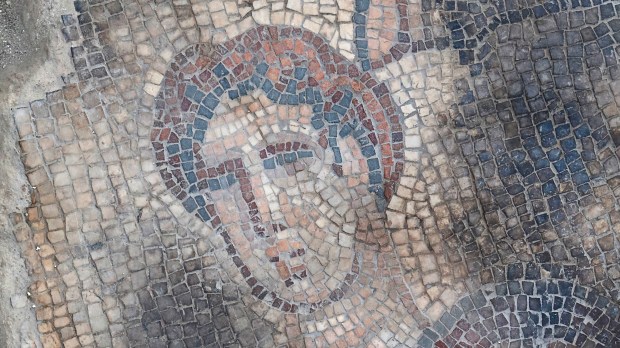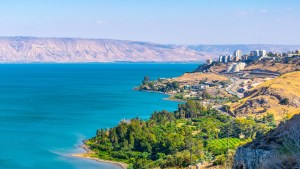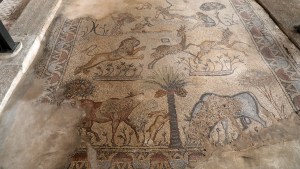Archaeological excavations in the 1,600-year-old Late Roman synagogue of Huqoq (an ancient Jewish village in Israel’s Lower Galilee) are the gift that keeps on giving. As the 11th and final season of excavations in the site comes to an end, the team of specialists led by Professor Jodi Magness, from the University of North Carolina at Chapel Hill, which had already uncovered a unique mosaic panel depicting Samson, have now found mosaics representing a dead Philistine horseman and soldier – motifs that belong to the same Samson cycle.
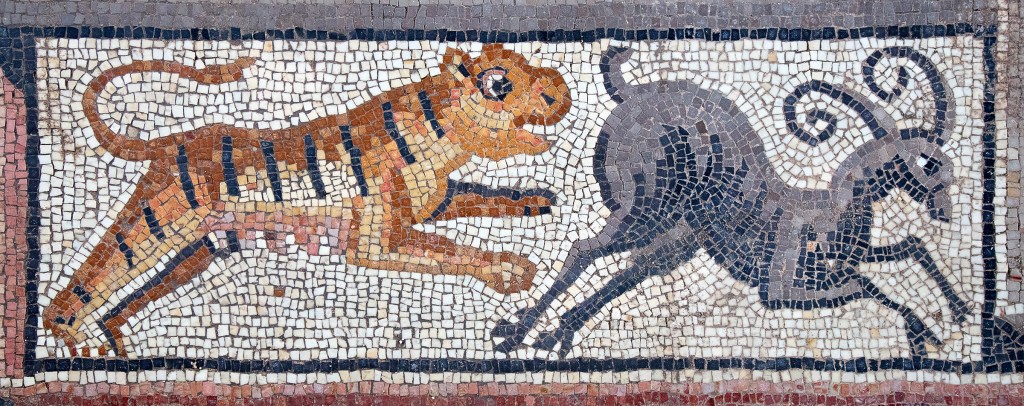
(Photo by Jim Haberman)
According to the note published by Phys.org, Magness and Assistant Director Dennis Mizzi of the University of Malta focused on the south end of the synagogue’s main nave and discovered a large mosaic panel, “in the center of which is an enigmatic Hebrew inscription framed within a wreath. To the sides and below the wreath, an Aramaic inscription lists the names either of the donors who provided funding for the synagogue’s mosaics or the artists who made them, asking that they be remembered for good. The wreath is flanked on either side by lions resting their forepaws on bulls’ heads. The entire panel is surrounded by a decorated border showing animals of prey pursuing other animals.”
Additionally, the excavation exposed more sections of a series of panels that had already been discovered in 2012 and 2013, all dedicated to the story of Samson as read in the book of Judges. These newly discovered panels show the episodes of Samson and the foxes as mentioned in Judges 15:4 and Samson carrying the gate of Gaza on his shoulders referenced in Judges 16:3.
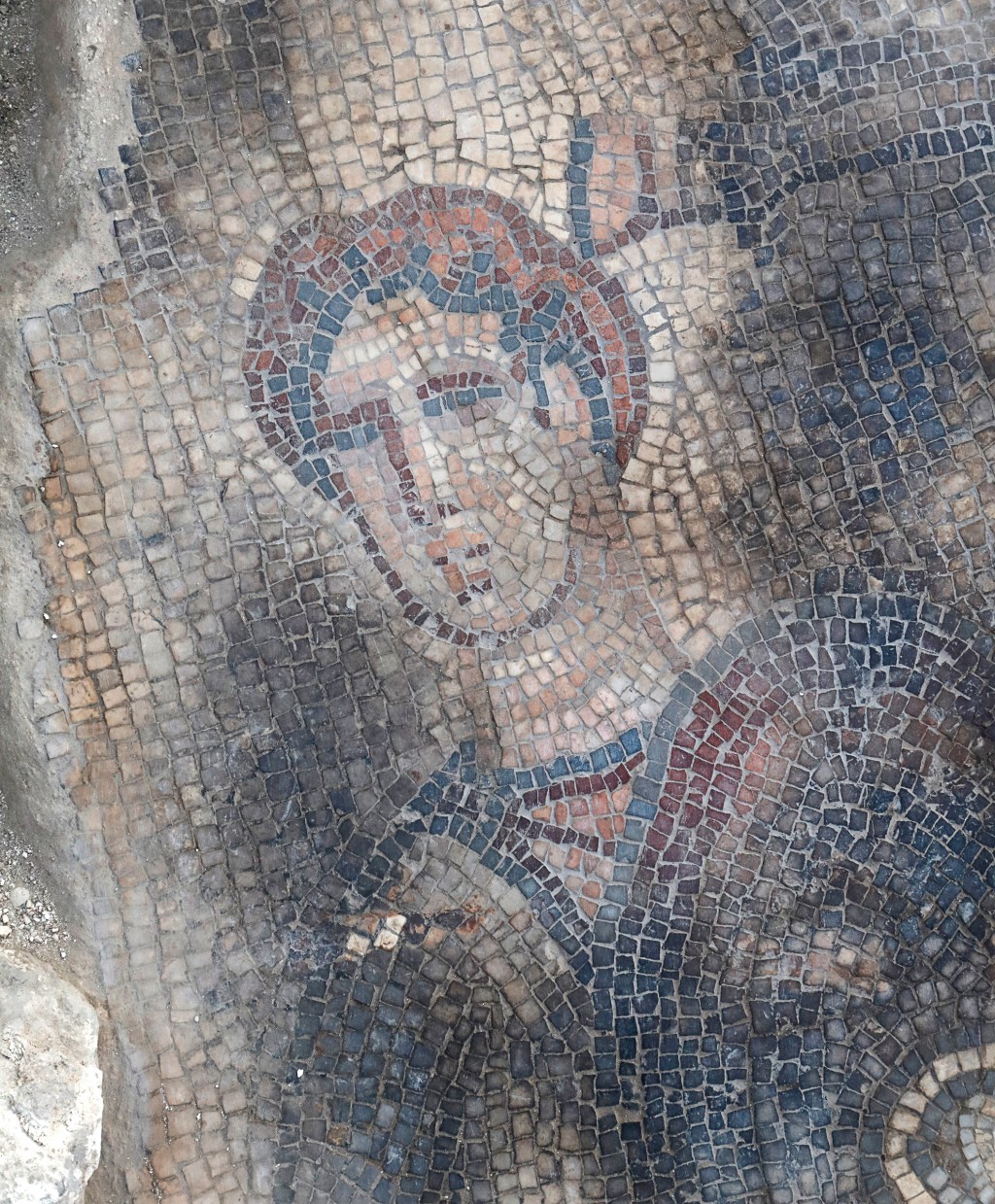
However, the Samson cycle is not the only mosaic series found in the Huqoq synagogue. The sweeping archaeological project has left an extraordinary legacy of historically significant finds, including:
- A Hebrew inscription surrounded by human figures, animals and mythological creatures including putti, or cupids.
- The first non-biblical story ever found decorating an ancient synagogue — perhaps the legendary meeting between Alexander the Great and the Jewish high priest.
- A panel depicting two of the spies sent by Moses to explore Canaan carrying a pole with a cluster of grapes, labeled “a pole between two” from Numbers 13:23.
- Another panel showing a man leading an animal on a rope accompanied by the inscription “a small child shall lead them” (Isaiah 11:6).
- Figures of animals identified by an Aramaic inscription as the four beasts representing four kingdoms in the book of Daniel, chapter 7.
- A large panel in the northwest aisle depicting Elim, the spot where the Israelites camped by 12 springs and 70 date palms after departing Egypt and wandering in the wilderness without water referenced in Exodus 15:27.
- A portrayal of Noah’s Ark.
- The parting of the Red Sea.
- A Helios-zodiac cycle.
- Jonah being swallowed by three successive fish.
- The building of the Tower of Babel.
The dig has also found that, in the early 4th century (that is, during the late medieval Mamluk period), the synagogue was rebuilt and expanded in size. This development, the team explained, most likely occurred in the wake of the establishment of a new international route connecting Cairo and Damascus that ran alongside Yakuk (Huqoq’s medieval name) and the rise of a tradition that the Tomb of Habakkuk was nearby, which became a focal point of late medieval Jewish pilgrimage.
